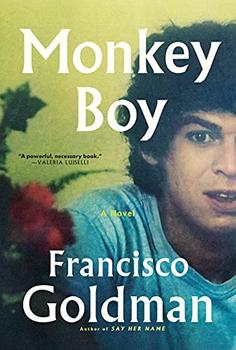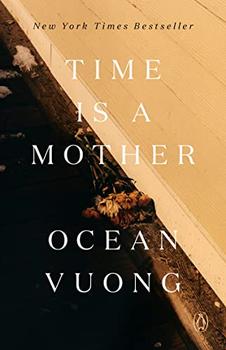Summary | Excerpt | Reviews | Beyond the book | Read-Alikes | Genres & Themes | Author Bio

Francisco Goldman's first novel since his acclaimed, nationally bestselling Say Her Name (winner of the Prix Femina étranger), Monkey Boy is a sweeping story about the impact of divided identity - whether Jewish/Catholic, white/brown, native/expat - and one misfit's quest to heal his damaged past and find love.
Our narrator, Francisco Goldberg, an American writer, has been living in Mexico when, because of a threat provoked by his journalism, he flees to New York City, hoping to start afresh. His last relationship ended devastatingly five years before, and he may now finally be on the cusp of a new love with a young Mexican woman he meets in Brooklyn. But Francisco is soon beckoned back to his childhood home outside Boston by a high school girlfriend who witnessed his youthful humiliations, and to visit his Guatemalan mother, Yolanda, whose intermittent lucidity unearths forgotten pockets of the past. On this five-day trip, the specter of Frank's recently deceased father, Bert, an immigrant from Ukraine – pathologically abusive, yet also at times infuriatingly endearing ― as well as the dramatic Guatemalan woman who helped raise him, and the high school bullies who called him "monkey boy," all loom.
Told in an intimate, irresistibly funny, and passionate voice, this extraordinary portrait of family and growing up "halfie," unearths the hidden cruelties in a predominantly white, working-class Boston suburb where Francisco came of age, and explores the pressures of living between worlds all his life. Monkey Boy is a new masterpiece of fiction from one of the most important American voices in the last forty years.
In his writing, Goldman exposes the underbelly of a complex web of brutality, from intimate family violence to the racism and bullying of a working-class Boston suburb, to the global violence of colonial oppression. Yet, as searing and unflinching as the novel is, it is also a work of tenderness and compassion. We fall in love with the characters, as flawed as they are, because Goldman paints them with a shining and necessary humanity...continued
Full Review
(782 words)
This review is available to non-members for a limited time. For full access,
become a member today.
(Reviewed by Naomi Benaron).
 The narrator of Francisco Goldman's autobiographical novel Monkey Boy, like Goldman himself, was a journalist who reported on the Guatemalan Civil War. The brutal war began in 1960 and lasted a total of 36 years. Over 200,000 were killed or "disappeared," more than 600 villages were attacked or completely destroyed by the army and 150 million people were displaced. Approximately 83 percent of the victims were Indigenous Maya, and 93 percent of human rights violations were carried out by the army and its paramilitary groups. Repercussions from the war still reverberate through the country today, and reconciliation remains elusive.
The narrator of Francisco Goldman's autobiographical novel Monkey Boy, like Goldman himself, was a journalist who reported on the Guatemalan Civil War. The brutal war began in 1960 and lasted a total of 36 years. Over 200,000 were killed or "disappeared," more than 600 villages were attacked or completely destroyed by the army and 150 million people were displaced. Approximately 83 percent of the victims were Indigenous Maya, and 93 percent of human rights violations were carried out by the army and its paramilitary groups. Repercussions from the war still reverberate through the country today, and reconciliation remains elusive.
Background
The seeds of the civil war found fertile ground following the 1954 military coup that toppled ...
This "beyond the book" feature is available to non-members for a limited time. Join today for full access.

If you liked Monkey Boy, try these:

by Ocean Vuong
Published 2025
Ocean Vuong returns with a bighearted novel about chosen family, unexpected friendship, and the stories we tell ourselves in order to survive.

by Ocean Vuong
Published 2023
The highly anticipated collection of poems from the award-winning writer Ocean Vuong.
I write to add to the beauty that now belongs to me
Click Here to find out who said this, as well as discovering other famous literary quotes!